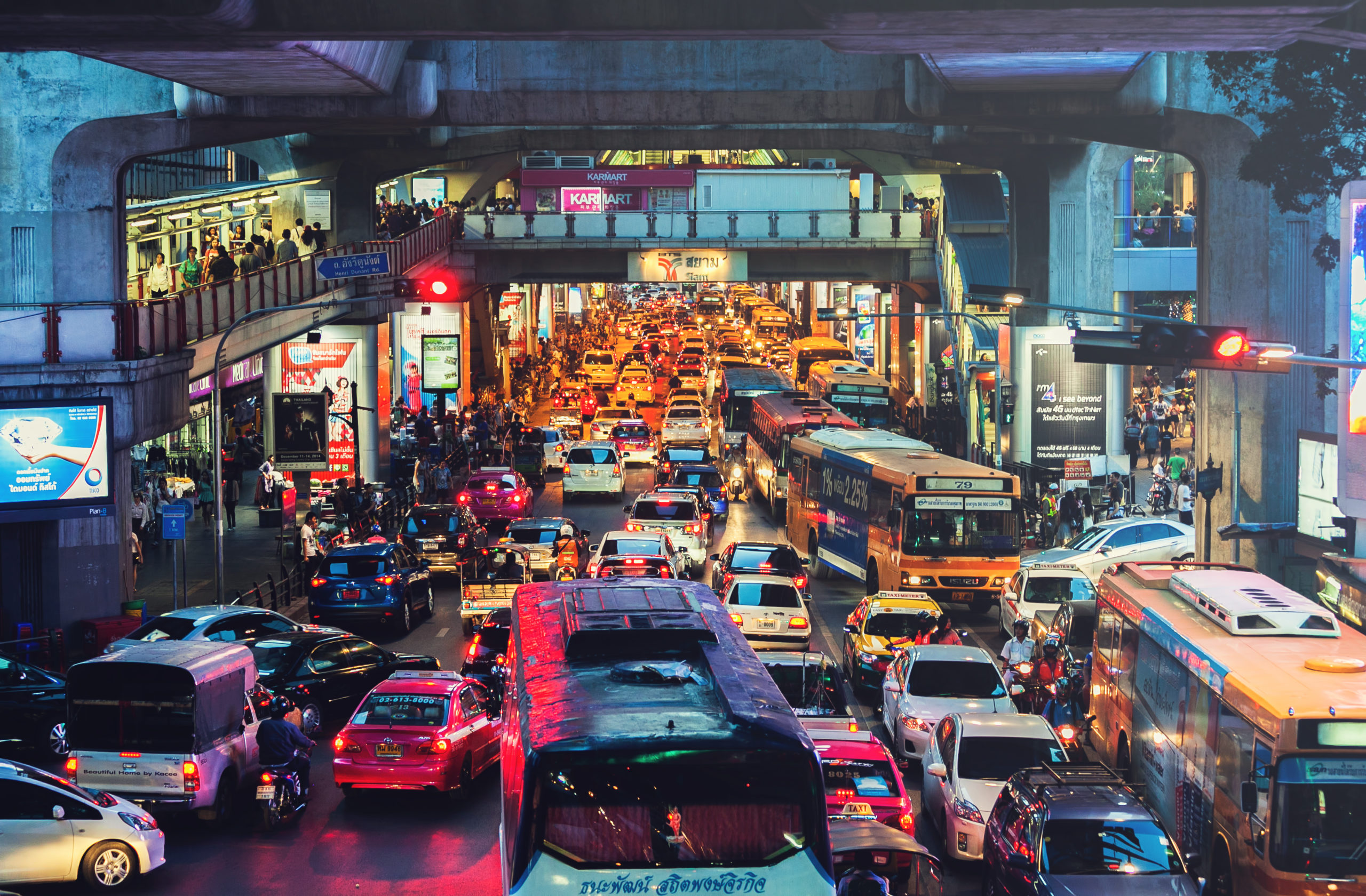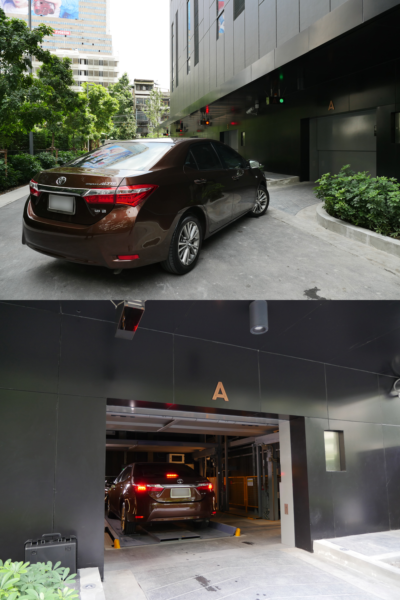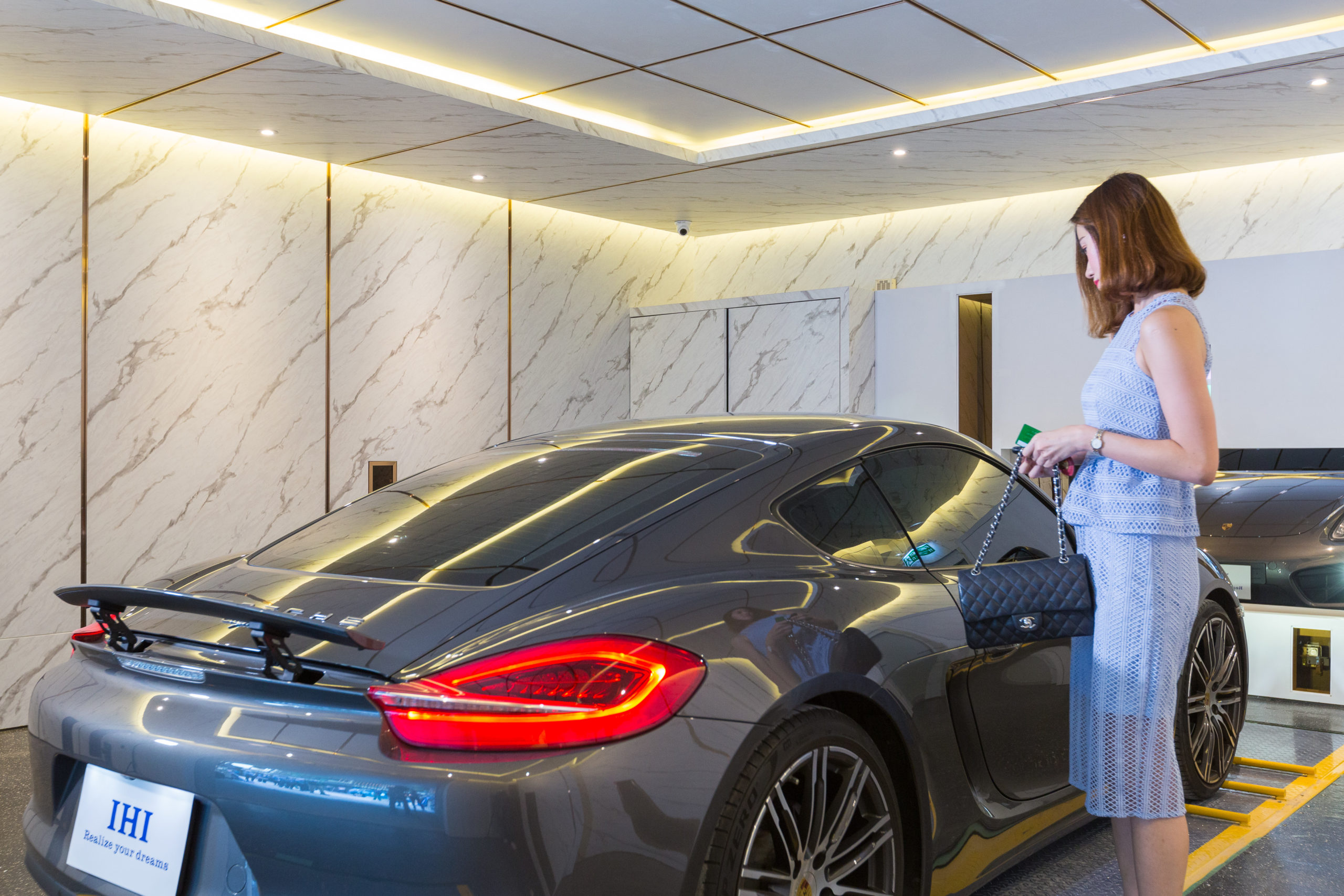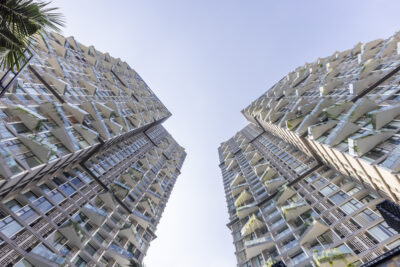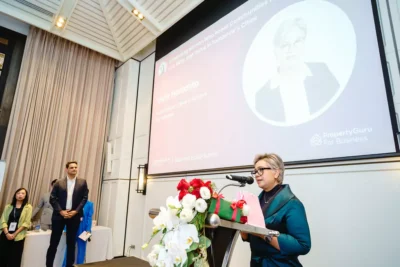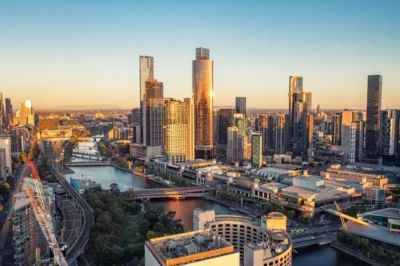How automated parking solves land scarcity in Bangkok
Brought to you by 
The pioneering company behind Japan’s automated parking systems shows the way forward for the congested, land-scarce Thai capital
Krung Thep Maha Nakhon, known in global parlance as Bangkok, is a city whose draws surpass the length of its name. As the world’s most visited city, Bangkok has held a fascination for millions of tourists worldwide.
In the same breath, however, Bangkok is highly densely populated, with 5,300 people packed into every square kilometre of the metropolis. Buoyed in part by constant extensions in mass transit lines, land prices have been inching forward quarterly in Greater Bangkok despite the pandemic—rising 7.6% year-on-year in Q3 2021 alone, according to the Real Estate Information Center (REIC).
Adding to this conundrum is the high rate of car ownership in Thailand, once nicknamed the Detroit of Asia for its thriving automobile manufacturing industry. More than 5 million cars now ply the streets of Bangkok as urban sprawl brings residential zones farther out into the city’s industrial fringes.
More: Thailand takes a shot in the dark to restore real estate market confidence
As land price growth overtakes construction costs, real estate companies have steadily raised price points for vertical built spaces to recoup their budgets for development. Car parking spaces have consequently become a luxury in the land-starved metropolis.
“As the city matures, the demand pushes land price to rise and low-rise areas are transformed into high-rise buildings to optimise their use,” said Kaj Miyake, general manager for sales and marketing at IHI Asia Pacific (Thailand) Co., Ltd., a leading provider of urban solutions in the region, including automated parking systems.
“Bangkok in the suburbs still has vacant land,” he adds. “However, as the city lacks efficient public transportation connecting CBD and the suburbs, we believe that the convenience and scarce availability drive the land price to increase further, resulting in buyers taking up offers before further increase in demand.”
Pre-pandemic, land prices had already leapt by up to 32.6% year-on-year for three consecutive quarters in 2018, the largest increases since the REIC began surveys.
This year, domestic car production between January and September reached 1.2 million units nationwide, a 25.6% year-on-year rise according to the Federation of Thai Industries’ automotive club. The market is clearly there—around 60% of Thais own a car, according to a survey by Rakuten Insight.
“Bangkok’s lack of efficient public transportation connecting suburbs and CBD forces the residents to favour the use of individual transportation means for their everyday movement,” said Miyake. “The volume of the vehicle traffic manoeuvring the city is large in volume, and by having inefficient parking, the vehicle owners are forced to park their vehicles on the side of the street, or wherever they can find space.”
But road space is not keeping up with automobile production. Bangkok has an 8% road-to-area ratio compared to Tokyo with 23% and New York with 32%. Such inadequate road transport infrastructure, combined with inefficient parking spaces and high car ownership rates, conspires to drive up land prices in the CBD.
“We believe that this pushes lawmakers to demand for more efficient parking space provision from the developers, resulting in developers seeking and bidding in high price for land which has capacity to build ‘efficient’ parking space and further pushing space within the CBD to be scarce,” said Miyake.
IHI Asia Pacific (Thailand) Co. Ltd.’s parent company, IHI, established its liaison office in Bangkok as early as 1971. In its native Japan, IHI was the first company to introduce the automated parking system, saving space in high-density megacities like Tokyo. Since 1962, the company has built more than 8,000 car towers, introducing urban planners to the merits of automated parking system technology.
“Cities like Bangkok will need to employ flexible infrastructure so that as time and demand shifts, the development can adjust accordingly,” said Miyake. “Rather than deploy scrap-and-build redevelopment, Bangkok should design itself so that developed space can be converted for alternative use when demand changes.”
IHI Asia Pacific (Thailand) Co. Ltd. has been delivering automated parking solutions in Thailand since 2014. Its parking systems are compliant with safety standards issued by the Japanese Ministry of Land & Transportation. “In Thailand, Japanese engineers and IHI-trained Thai engineers deliver the same quality standard to all our clients,” said Miyake.
The company offers Thai developers and architects a wide array of automated parking systems, ranging from slick subterranean machineries to elegant above-ground automated parking systems, all tailored to the site context. The systems are designed with precision, built in the spirit of monozukuri.
High-rise developments in Bangkok are suited to IHI’s Elevator Parking Systems: tower-type systems capable of accommodating up to 80 parking lots a unit. This system can integrate various options to suit the development context.
Small to medium-sized residential and commercial developments, on the other hand, can incorporate IHI’s Lexel Parking System, a vertical, puzzle-type parking system for indoor or outdoor use. This space-saving carpark solution, which stands anywhere from two to five stories high above ground, can easily increase its capacity with a simple hoist-and-slide movement.
The IHI Super Square Parking System makes the most of a building’s underground space—ideal for commercial and office buildings with small footprints. Using sophisticated algorithmic programming and puzzle-like mechanical sliding motions, the system allows for efficient retrieval of cars within confined spaces.
In Southeast Asia, IHI reintroduced its classic Cart Parking System due to high demand. Simple yet effective, the IHI Cart Parking System may be utilised in a variety of development typologies. “Countries in Southeast Asia still have room for growth,” said Miyake. “Thailand, especially, is in a privileged position to learn from past mistakes in many parts of the world and utilise the best and latest technologies available to further enhance property development.”
As it stands, the average idling time looking for a parking space in Bangkok is approximately 15 minutes a day or 90 hours a year. IHI’s automated parking systems can reduce this to five minutes a day or 30 hours per year.
The city needs more such sustainable measures as officials pave the way for “Green Bangkok” in 2030. By the next decade, Bangkok will have been one of the world’s biggest megacities. Developers, architects and urban planners will need to cooperate and make the most of dwindling space in a rapidly growing urban agglomeration.
“In the past, urban planning in Thailand appears to have focused on short-term goals without in-depth, large-scale master-planning,” said Miyake. “IHI hopes that Thailand’s urban planning progresses with adaptation of flexibility whilst being sustainable, to become a world leader in accommodating a comfortable living environment.”
For more information on IHI, the gold sponsor of the PropertyGuru Thailand Property Awards, please visit the official IHI site
Recommended
Dewan Architects’ Mohammed Adib leads with human-centred design and technological innovation in the Middle East and beyond
Mohammed Adib channels his childhood curiosity and dislike for design uniformity into his work at Dewan Architects + Engineers
UAE real estate shifts focus to sustainability and quality, revitalising iconic projects
The UAE has risen from its challenges to emerge as a more sustainable, quality-focused destination
Exploring A Life By Design’s maximalist approach to interior design
Andrea Savage is embracing the maximalist trend with bold and vibrant interior designs
Jakarta’s emerging innovation hub integrates tech and healthcare sectors
The Digital Hub in BSD City is being positioned as Indonesia’s counterpart to Silicon Valley

